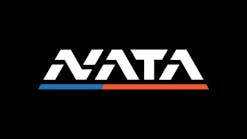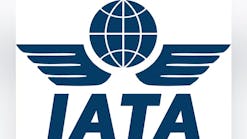Leaders from Across the European Aviation Value Chain Steer Towards an Ambitious 10% Sustainable Aviation Fuel Blending Mandate by 2030
LONDON, July 13, 2021 – Members of the Clean Skies for Tomorrow initiative (CST), from across the European aviation value-chain, have expressed their support for and provided recommendations on the implementation of an ambitious European SAF (Sustainable Aviation Fuels) blending mandate, which is currently under consideration by policymakers as part of the upcoming Refuel EU Aviation initiative expected to be published mid-July.
The CST initiative, supported by the Mission Possible Partnership, brings together leaders from across the aviation value chain and aims to facilitate the transition to net-zero flying by mid-century through the use of Sustainable Aviation Fuels (SAFs) and other clean propulsion technologies. Members of the CST who have backed the policy proposal include: Airbus Group, bp p.l.c., Copenhagen Airports AS, Deutsche Post DHL Group, Groupe ADP, Heathrow Airport, International Airlines Group, KLM Royal Dutch Airlines, Kuehne+Nagel, LanzaJet, LanzaTech, Neste, Norsk e-Fuel, Rolls-Royce plc, Royal Dutch Shell, Royal Schiphol Group, SkyNRG, Sunfire, the Boeing Company, TotalEnergies and Velocys.
The Guidelines for a Sustainable Aviation Fuel Blending Mandate in Europe assesses the feasible ramp-up of SAF production in Europe to inform the level of the proposed SAF blending mandate over the next decades, estimates the level of public financial support required to meet this volume of SAF production, considers options for mitigating competitive distortion effects from the introduction of the policy and proposes solutions to currently unresolved questions relating to the design of the SAF blending mandate.
SAF production can feasibly ramp up to 10% of total European jet fuel consumption by 2030. Using tight sustainability criteria with regards to feedstock availability, the analyses, developed by the Energy Transitions Commission for CST, find that SAF could account for 10% of jet fuel usage in Europe by 2030 (about 6.5 Mt per year) if supported by appropriate and timely measures. These include the immediate announcement of a blending mandate with increasing targets over time, essential to underpin the investment case for SAF plants by creating certainty of future demand, as well as public financial support to de-risk investment in SAF pathways, and policies ensuring preferential access to sustainable biomass resources for aviation. The brief also suggests an intermediary blending mandate of 2-5% of total European jet fuel consumption by 2025, which could be met by existing and already planned sustainable fuel plants.
A SAF blending mandate could be efficiently implemented via an obligation on fuel suppliers in Europe via a volumetric target or a greenhouse gas (GHG) intensity reduction target. It would then likely apply to all flights departing from Europe. It should include sub-targets for novel technological pathways (lignocellulosic and power-to-liquid routes) with lower technical readiness levels to accelerate their cost reduction and support their rapid deployment.
Public investment support required to reach the desired levels of SAF production in Europe for new SAF plants could be in the order of EUR 120 billion in total over the next 15 years. The bulk of this investment would support the commercialization of SAF production pathways that are currently at lower technology readiness levels but have the greatest potential to scale – i.e., the lignocellulosic and power-to-liquid pathways – and represent the largest share of SAF output after 2030.
Additional public support may be required to bridge the cost differential between SAF and conventional jet fuel for off-takers to mitigate the risks of competitive distortion and fuel tankering. The scale of potential competitive distortions will depend on the scope of the mandate – on intra-EEA flights or all flights departing from EEA –, its level and the evolution of SAF prices over time. The report estimates that, in the case of a mandate on all departing flights, flights at risk of re-routing – intercontinental and feeder flights – would represent about 10% of total traffic in Europe, and that 5% of those might be impacted by 2030 with a blending mandate reaching 10%.
“By 2030, 10% of European aviation could be powered by Sustainable Aviation Fuels. This will require a rapid but feasible scale-up of the SAF supply chain, including of novel production pathways. Leading airlines, airports, fuel providers and aircraft manufacturers are calling for a stable, long-term policy framework to unlock investment in SAF plants and make that potential reality. A blending mandate with ambitious targets is the critical foundation of that policy package, alongside investment de-risking mechanisms and measures to address competitive distortions,” commented Faustine Delasalle, Co-Executive Director, Mission Possible Partnership.
“We are observing an encouraging increase in commitments from aviation stakeholders as we chart a way towards net-zero for the sector”, said Lauren Uppink Calderwood, Head of Aviation, Travel and Tourism at the World Economic Forum. “Considered but ambitious blending mandates, among other policy tools, are key to enabling the investment and business decisions needed for a transition to sustainable aviation fuels”.
To read the full Guidelines for a Sustainable Aviation Fuel Blending Mandate in Europe please visit: https://www.energy-transitions.org/sustainable-aviation-fuel-blending-mandate-europe
Signatories of the Guidelines for a Sustainable Aviation Fuel Blending Mandate in Europe include:
- Airbus Group
- bp p.l.c
- Copenhagen Airports A/S
- Deutsche Post DHL Group
- Groupe ADP
- Heathrow Airport
- International Airlines Group
- KLM Royal Dutch Airlines
- Kuehne+Nagel
- LanzaJet
- LanzaTech
- Neste
- Norsk e-Fuel AS
- Rolls-Royce p.l.c.
- Royal Dutch Shell
- Royal Schiphol Group
- SkyNRG
- Sunfire
- The Boeing Company
- TotalEnergies
- Velocys

